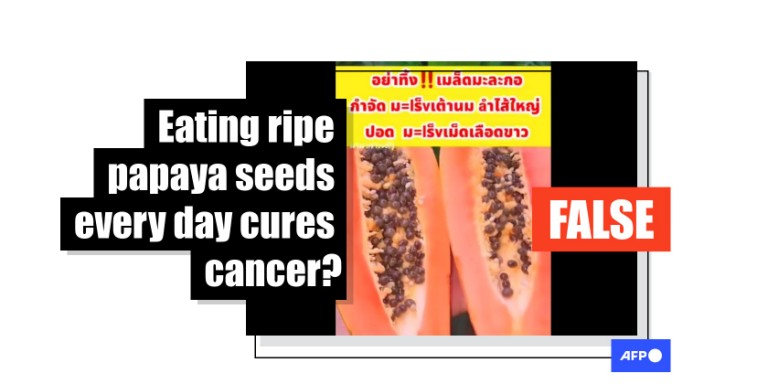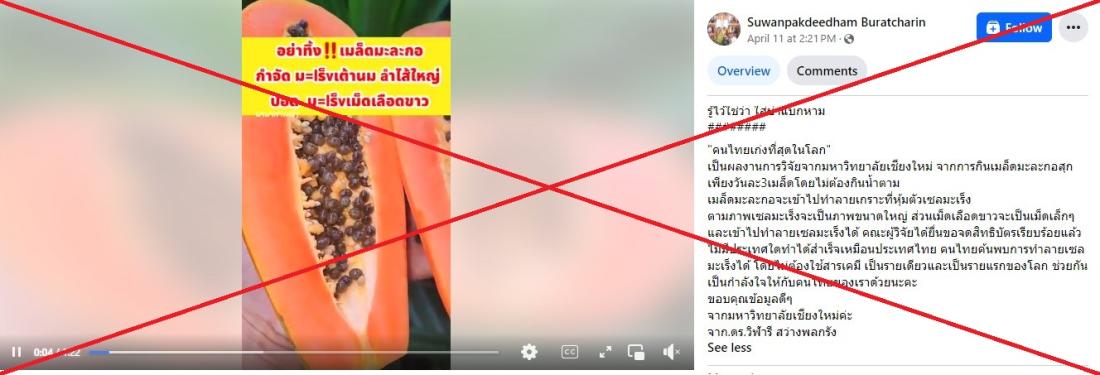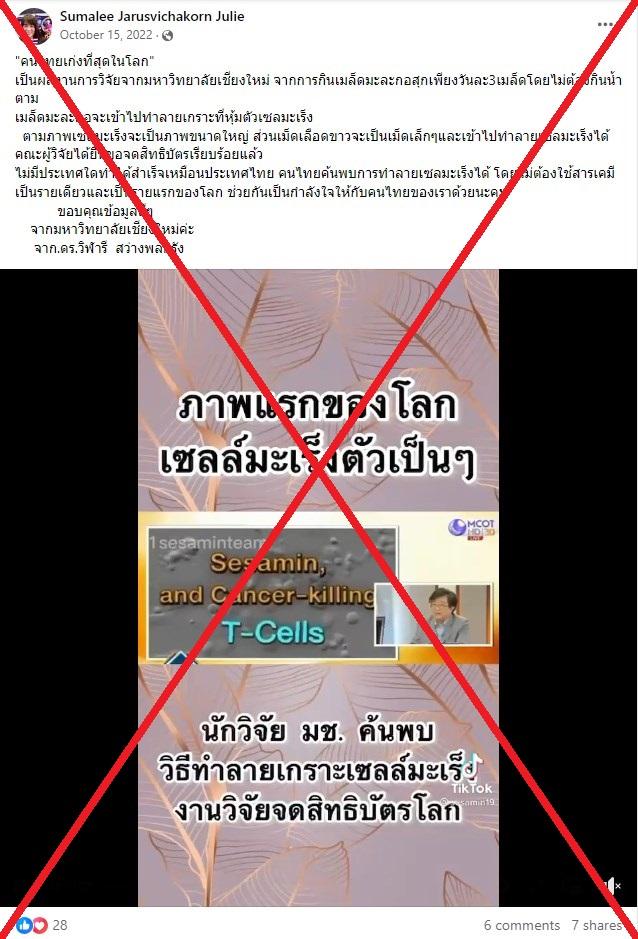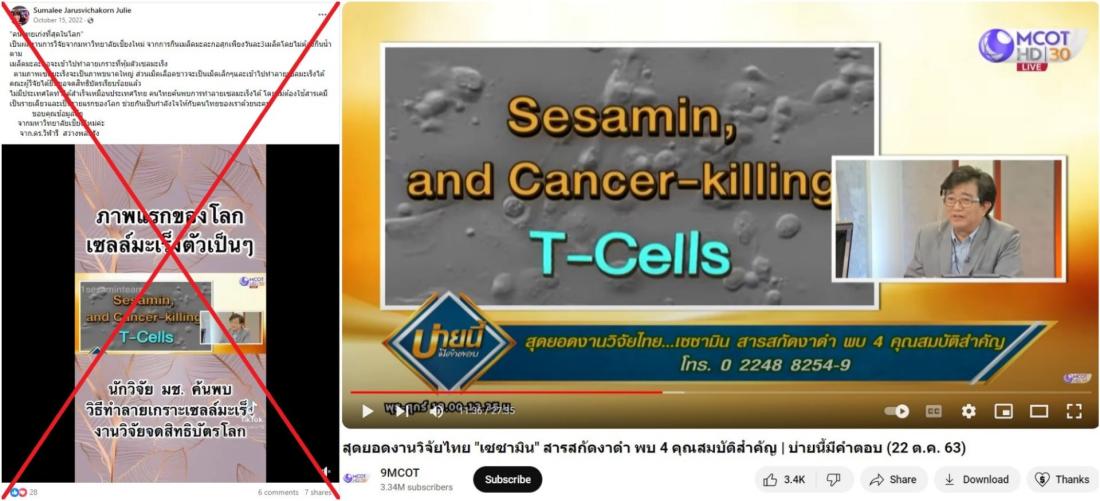
Thai scientist rejects Facebook claim he discovered 'papaya cancer cure'
- This article is more than one year old.
- Published on April 24, 2024 at 09:24
- 3 min read
- By Chayanit ITTHIPONGMAETEE, AFP Thailand
"Thai people are the best in the world. A study from Chiang Mai University has found that eating three ripe papaya seeds a day without drinking water afterwards will destroy the coating that protects cancer cells," read a Thai-language Facebook post shared on April 11, 2024.
The video showed a ripe papaya cut open with seeds inside visible.
Thai text superimposed on the clip said: "Don't throw away. Papaya seeds cure breast, lung, intestinal cancers and leukaemia." A voice-over could also be heard largely repeating the false claim in Thai.

The false claim has circulated online since at least October 2022, including in Facebook posts here and here that shared a video of a researcher interviewed on a television news programme.
"Researcher from Chiang Mai University discovered a way to destroy cancer cells. The research has been patented worldwide," read Thai text superimposed on the footage.

Thailand's Ministry of Digital Economy and Society ranked the papaya claim as the most prevalent or "No. 1 misinformation" in Thailand for the year 2022 (archived link).
The misinformation resurfaced in February 2024 in Facebook reels that garnered thousands of shares, including here and here. The claim also circulated on the popular Thai messaging app LINE.
Sesame, not papaya
The researcher interviewed in the video shared in Facebook posts was Prachya Kongtawelert, a biochemistry professor at Chiang Mai University.
In the interview, which originally aired on Thai state-run broadcaster MCOT on October 22, 2020, Prachya presented the benefits of sesame extract -- not papaya seeds (archived link).
MCOT posted the interview on YouTube with the title: "Excellent Thai research discovers 'sesamin' or sesame extract with four important properties".
Below is a screenshot comparison of the false post (left) and MCOT's YouTube video from 2020 (right):

Prachya told AFP on April 22, 2024 that he had never conducted research on papaya seeds.
"The claim is rubbish. There is no research about chewing papaya seeds from Chiang Mai University," he said.
"My research does not have anything to do with papaya seeds. I actually conducted research on sesame and orange extracts."
Prachya's research focuses on the potential of sesame and citrus seed extracts in inhibiting cancer growth. Some of his studies were published in 2015 and 2021 (archived links here and here).
'No definitive evidence'
While papaya is rich in nutrients such as vitamins A, C and E, health authorities said there was no evidence that chewing seeds from the pear-shaped tropical fruit could cure cancer (archived link).
Thailand's National Cancer Institute has also told AFP the claim was "false information".
A spokesperson from the institute -- which is run by the Thai health ministry -- pointed to various fact checks published by its Anti-Fake News Center.
"There has not been any definitive clinical evidence to support the claim that eating ripe papaya seeds can treat late-stage cancer in humans," the institute was cited saying in fact checks in 2022 and 2023 here and here (archived links here and here).
According to the fact checks, while researchers' preliminary findings found significant compounds in papaya seeds that could play a role in halting the growth of cancer cells, these studies were limited to a laboratory setting.
"There are no studies on this in humans yet," the institute said in a fact check published on September 15, 2023. "Much more research is necessary to confirm this claim."
Thailand's Bureau of Nutrition, which also operates under the health ministry, also warned against touting papaya seeds as a cancer cure.
"There needs to be more research to determine if the amount of benzyl isothiocyanate [a potential anti-cancer compound] found in papaya seeds can affect human health," a spokesperson told AFP on April 22, 2024.
The spokesperson went on to say that eating excessive amounts of papaya seeds -- which are a source of fibre -- could cause an upset stomach.
Copyright © AFP 2017-2026. Any commercial use of this content requires a subscription. Click here to find out more.
Is there content that you would like AFP to fact-check? Get in touch.
Contact us
